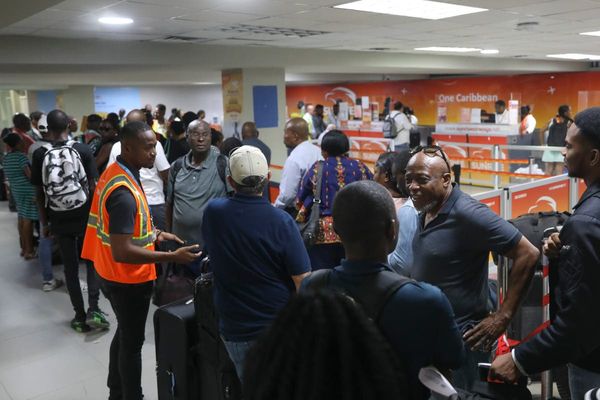
Business and investing: Hawkish central banks keep investors on edge; ERoad takeover offer sends share price rocketing; Bitcoin arises from its slumber.
As the countdown begins to the Reserve Bank’s latest Monetary Policy Statement in a little over two weeks, the central bank will likely take comfort from a new report that concludes current immigration settings are not adding to existing inflationary pressures as expected and that 5.5 percent is likely to be the peak for the official cash rate.
While acknowledging net immigration is a major swing variable in the economy and would normally be inflationary, ASB Bank’s Mark Smith and Kathryn Shearing say New Zealand’s recent net immigration increase wasn’t “sticking to the script” of previous migration inflows when it came to boosting the economy.
“It’s difficult to discern a demand-side boost from increased net immigration given the economy is essentially flatlining at best, a sizeable per capita recession is already under way, and the housing market is still failing to fire,” they said.
READ MORE: * Reserve Bank faces new inflation headwinds as immigration surges * What the hell's going on with migrant workers?
On the plus side, the increased net immigration had coincided with the easing of labour shortages, which pointed to a “beneficial impact” on the supply side of the economy.
As a result, Smith and Shearing expect that net immigration’s stronger outlook would result in “considerably less upward pressures on medium-term inflation than was historically the case”, while also pointing out that household spending wasn’t yet showing signs of a net immigration “boost”.
“The housing market looks to have troughed, but it’s not setting the world on fire, despite more people requiring housing in New Zealand.”
Given that immigration flows are notoriously difficult to forecast, the report’s authors conclude that even if they remain strong, the inflationary impacts are unlikely to be as marked or persistent as have historically been the case.
“This likely reflects the composition of who is coming in (typically younger) relative to who is leaving (generally older) that could be mitigating the boost to demand, while also supporting the supply of labour.
"With New Zealand amid a sizeable per capita recession, the vibe this time around seems considerably at odds with past immigration cycles that had turbocharged the housing market and contributed to economic overheating.”
The report concludes that with net immigration likely to be less of an inflationary beacon, monetary conditions already highly restrictive and with inflationary pressures abating, “5.5 percent looks to be the peak in the official cash rate this cycle.”
The Reserve Bank will release its latest Monetary Policy Review on July 12.
Markets remain jittery as slowing growth and hawkish central banks keep investors on edge
Local investors were largely spared the gyrations on global equity markets last week after US Federal Reserve chief Jerome Powell unleashed yet another bout of hawkish commentary on interest rates despite increasing signs of slowing growth.
While the NZX50 fell a modest 0.5 percent for the week, the FTSE All-World index, which tracks the largest companies globally, slid 2.2 percent, its worst performance since the US regional banking crisis began in March following the dramatic collapse of Silicon Valley Bank.
Wall Street’s benchmark S&P 500 fell 1.4 percent for the week – shortened by the Juneteenth holiday in the US last Monday – while across the Tasman Australia’s ASX200 fell 2.2 percent for the week, it’s sharpest weekly fall since mid-March as further signs of slowing global growth intensified.
The moves came after a week of hawkish signals from policymakers both in the US and Europe, as central banks prioritised their battle against stubbornly high inflation, even as several economic indicators pointed to a slowdown on both sides of the Atlantic.
“The sell-off shows you that the market hadn’t quite accepted that we are now in a very different economic regime,” Georgina Taylor, head of multi-asset at Invesco told the Financial Times.
“Investors who had become used to policymakers ‘riding to the rescue’ in times of economic hardship are having to adjust to this new paradigm, and that’s what keeps the volatility in markets”, she added.
Central banks in Switzerland, Norway and the UK all raised their benchmark interest rates last week, including The Bank of England which hiked rates by half a percentage point, surprising investors who were only expecting a quarter percentage point increase, while US Federal Reserve chair Jay Powell signalled two more quarter-point rate increases were likely by the end of 2023.
Speaking to a congressional banking committee, Powell reiterated his earlier message that the central bank was laser focused on reducing elevated price growth back to target. “The process of getting inflation down to 2 percent has a long way to go,” he told the House Financial Services Committee during a three-hour hearing.
However, Treasury Secretary Janet Yellen sees diminishing risk of the US falling into recession and suggested that a slowdown in consumer spending may be the price to pay to contain inflation.
Commenting on the chance of an economic contraction in a Bloomberg News interview, Yellen said “my odds of it, if anything, have gone down — because look at the resilience of the labour market, and inflation is coming down.”
That said, she did not rule out the risk of a slowdown, given the potential for more rate hikes from the Federal Reserve.
Market watchers also believe the Fed is giving itself the flexibility to raise rates if it has to while minimizing potential market volatility. As one analyst put it: signaling more rate hikes are coming and then not making those hikes would be less of a problem for investors to deal with than forecasting cuts or a pause and then hiking instead.
Meanwhile, a number of closely watched business surveys on Friday showed economic activity had stalled in the US and the eurozone, echoing analysts’ warnings that inflation-taming policies could come at a price of recession in large economies around the world.
Equity markets in Japan fell sharply after an important gauge of the country’s consumer prices rose at its fastest pace in 42 years in May, increasing the challenges for the central bank as inflation has proved stickier than expected. The core consumer price index, which excludes volatile energy and food prices but includes alcoholic beverages, increased at an annual rate of 4.3 percent, the fastest pace since June 1981.
ERoad takeover offer sends share price rocketing
Shares in fleet management software provider ERoad ended the week with a gain of more than 60 percent after becoming the target of a potential takeover offer by Taiwanese telematics company Brillian which revealed it had accumulated an almost 20 percent holding in the company in recent weeks.
Brillian is part of Volaris Group, which describes itself as a “buy and hold” investor in software companies.
ERoad’s ordinary shares were placed in a trading halt on Thursday ahead of the announcement.
The non-binding indicative proposal from Volaris outlined its intention to acquire 100% of the company at a proposed price of $1.30 per share in cash while noting that its preferred approach was by way of a scheme of arrangement.
The proposal is subject to a number of conditions, including due diligence on an exclusive basis, negotiation and execution of a scheme implementation agreement with customary terms and conditions, unanimous support from ERoad’s Board of Directors and approval from Volaris’ investment committee.
In a statement ERoad’s Board of Directors said it had commenced a process to consider the takeover proposal and would act in what it considers to be the best interests of the Company and its shareholders.
ERoad was founded in 2000 and is dual listed on both the NZX and ASX. In recent years it has been making inroads into North American truck fleet management.
The shares peaked at $6.70 in July 2021, before hitting a low of just 53c recently following the sudden departure of long-time founder and chief executive Steven Newman last year.
Bitcoin arises from its slumber
Bitcoin rose above US$31,400 a coin on Friday, its highest level since 2022, following growing interest in the crypto space from some of the world's more influential investment companies.
The world’s largest cryptocurrency by market capitalization had earlier traded above US$30,000 for the first time since April, when the collapses of Silicon Valley Bank and Signature Bank sent investors fleeing.
Bitcoin has since gained more than 80% in value this year after a wave of interest in crypto from financial giants including BlackRock, one of the world’s largest investment managers, which last week applied to register a bitcoin spot exchange-traded fund, according to a US Securities and Exchange Commission filing.
Crypto exchange EDX Markets, backed by firms such as Charles Schwab, Fidelity Digital Assets and Citadel, have also launched digital asset trading platforms recently.
However, the renewed fervor for crypto comes against a backdrop of continued regulatory crackdowns. The US Securities and Exchange Commission earlier this month sued Coinbase, the US’s largest crypto exchange, alleging that it had acted as an unregistered broker. The high profile legal action came just a day after federal regulators sued fellow crypto exchange Binance, accusing the company of operating an illegal exchange in the US and combining customers’ assets.
Despite its surge this year, bitcoin remains well below its all-time highs of more than US$60,000 in 2021.
Meanwhile, Australian media reports claim disgraced NRL Star Jarryd Hayne has been caught up in an expensive Bitcoin jail scam that has left him counting his loses.
Australia’s Daily Telegraph reported a con-artist duped Hayne out of A$780,000 worth of Bitcoin while the pair were inmates in Cooma Jail, near Canberra.
It is alleged a fellow inmate told the former Parramatta Eels player he worked for an investment company and could earn him big returns if he invested.







